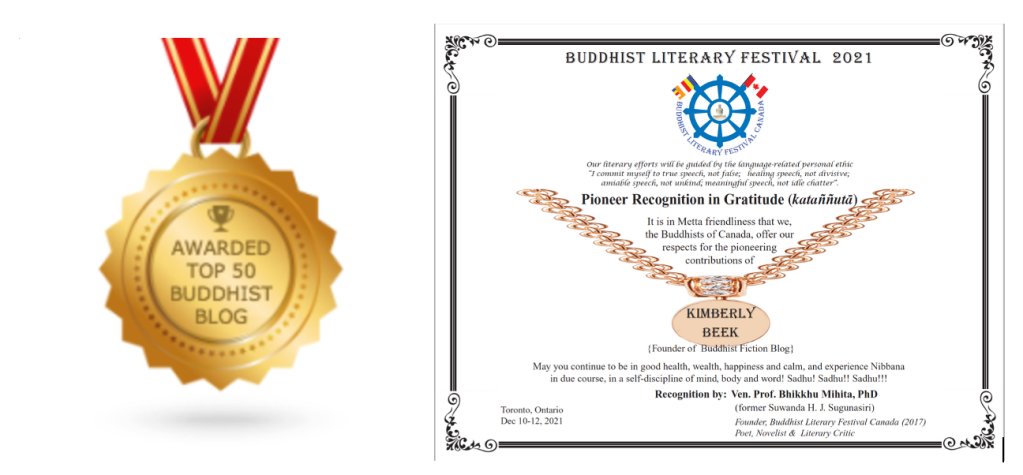JAKE FADES has been labeled as “Buddhist fiction” by Kimberly French (uuworld.org “Guide to Buddhist Fiction” by Kimberly French, 15 Feb 2010 and uuworld.org “Sitting, with a good Buddhist novel” by Kimberly French, 15 Feb 2010) and Danny Fisher (Rev.DannyFisher “FROM THE MAILBAG: Buddhism in Popular Fiction” by Reverend Danny Fisher, 6 Sep 2008).
Long-time, low-key (he runs a bike shop in Maine) Zen teacher Jake is aging and showing signs of dementia. Mostly he’s still cogent, but he’s decided it’s time to turn the teaching over to his long-time student, Hank. Is Hank ready, though? This is the main question around which the plot of JAKE FADES revolves.
But a secondary plot concerns the role of sexuality in the relationship of student and teacher. As the story unfolds, we learn more and more about the characters’ past lives, and about how their struggles with this issue, and with relationships in general, have played out. Now, in the present, Hank has to deal with temptation in the form of a bar girl who also wants to study Zen but who is very attractive as well as quite forward. She will be Hank’s student. Will he resist temptation? We hear about this very sticky question from the male teacher’s point of view, since Hank is the first person narrator.
The setting is Central Square in Cambridge, and those familiar with the scene will enjoy the detail. Jake and Hank have come here from Maine in order to give a retreat in the house a well-to-do long time student, Madeleine, has given Jake. But as Jake starts to “fade,” it is clear that Madeleine doesn’t picture Hank (or anyone) as his successor. Will Hank become the teacher he doesn’t think he can be? Will Jake’s students come to accept him? How will it all play out?
Some questions to ponder or comment on:
- Did you feel that the story accurately represented the thoughts of a fledgling Zen teacher? Do you think Hank is ready to teach? Why or why not?
- There are some surprises in the last two chapters. Did you anticipate them? Do you think the ending was appropriate?
- One reader objected in an Amazon review to Zen teachers hanging out in a bar. Did you find the drinking objectionable? Did it make sense in the context of the story or not?
- Jake seems to caution Hank about sex with students when he says, “[W]hen the person is a student, no matter how much it seems personal, it’s always the dharma. That’s what she’s in love with.” (p. 118) Do you think this is true?
- Hank says, “And there was a rock-bottom notion in Zen that once you started on the path, you never got off. You could neglect it all you wanted, quit altogether. You were still there.” (p. 110) Is this true?
- It’s tricky to tell enough about the practice in a Zen story to allow readers to follow along and perhaps learn something without boring people who are already seasoned practitioners. Do you think Guy got the balance right?


